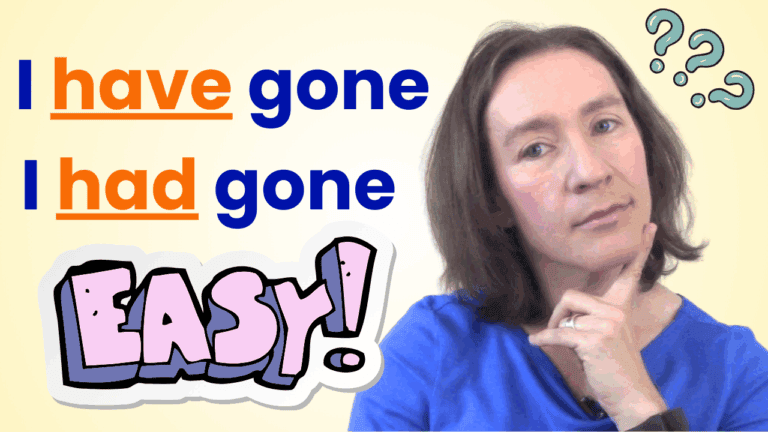
Today I want to teach you about a tricky little grammar mistake that I see a lot of students making when using the verbs see, watch, and hear.
Sometimes when students describe what they observe, they use sentences like these:
- I often see John makes mistakes.
- I like to hear my daughter sings.
- I watched him played soccer.
However, it would be better to say these sentences like this:
- I often see John make/making mistakes.
- I like to hear my daughter sing/singing.
- I watched him play/playing soccer.
When we use the structure see/hear/watch + someone + verb, that verb must be in the base form or the -ING form, never with -s or in the past. This applies even if the observation verb (see/hear/watch) is in the past.
Some people make a distinction between the base form and the -ING form, saying that see + someone + do something means you see the entire action, whereas see + someone + doing something means you see only part of the action:
- I heard her sing a song. = I heard the entire song
- I heard her singing a song. = I heard part of the song
See / Hear + That
The structure and meaning of the sentence changes somewhat if we add the word “that” to “see” and “hear.” (We cannot use “that” with “watch”).
We usually use “see that” when we are seeing the result of the action, not the action itself:
- This project is excellent. I can see that you’ve worked very hard.
(= I didn’t see you working, I see the result of the work) - I saw that she’d been crying.
(= I didn’t see her crying, but I saw her sad face / red eyes, the result of her crying)
With “see/hear that,” the next verb CAN end in –s or be in the past:
- I see that Angela likes classical music.
- I see that John made a lot of mistakes.
When we use “hear/heard that,” it means that we did NOT hear a sound directly – it means that someone else told us about a fact; we learned it indirectly.
- I heard Doug say he was frustrated. (= I personally heard Doug say this)
- I heard that Doug lost his job. (= someone else told me that Doug lost his job)










